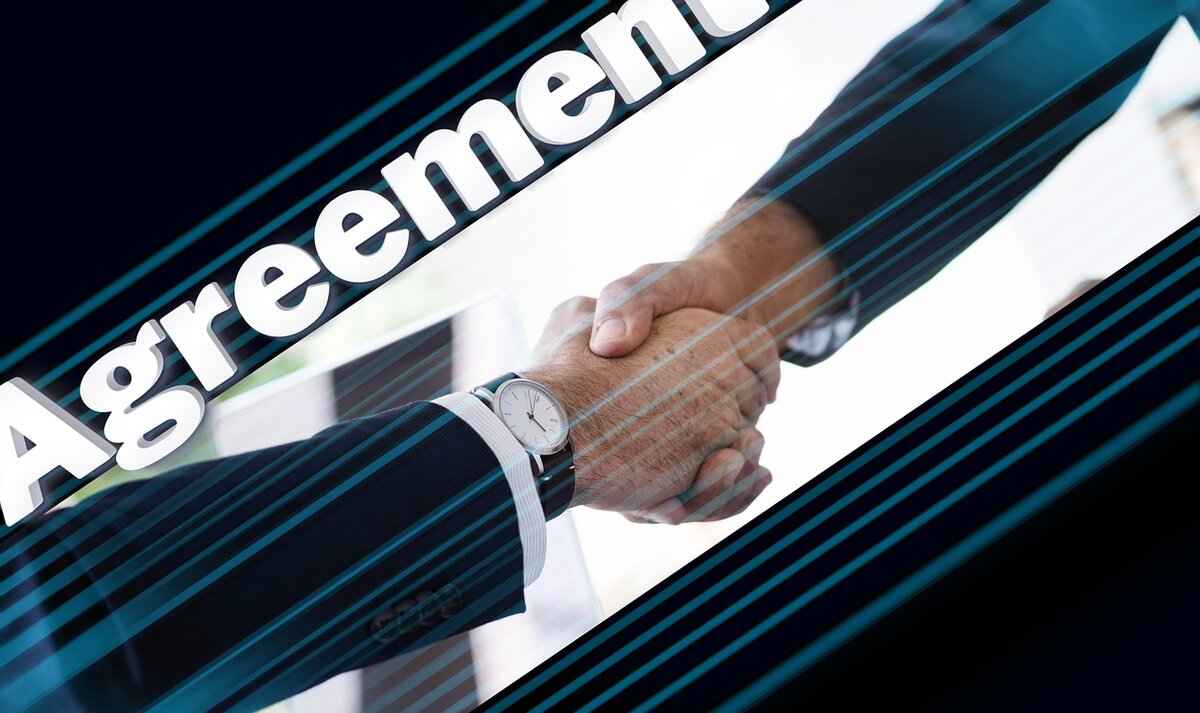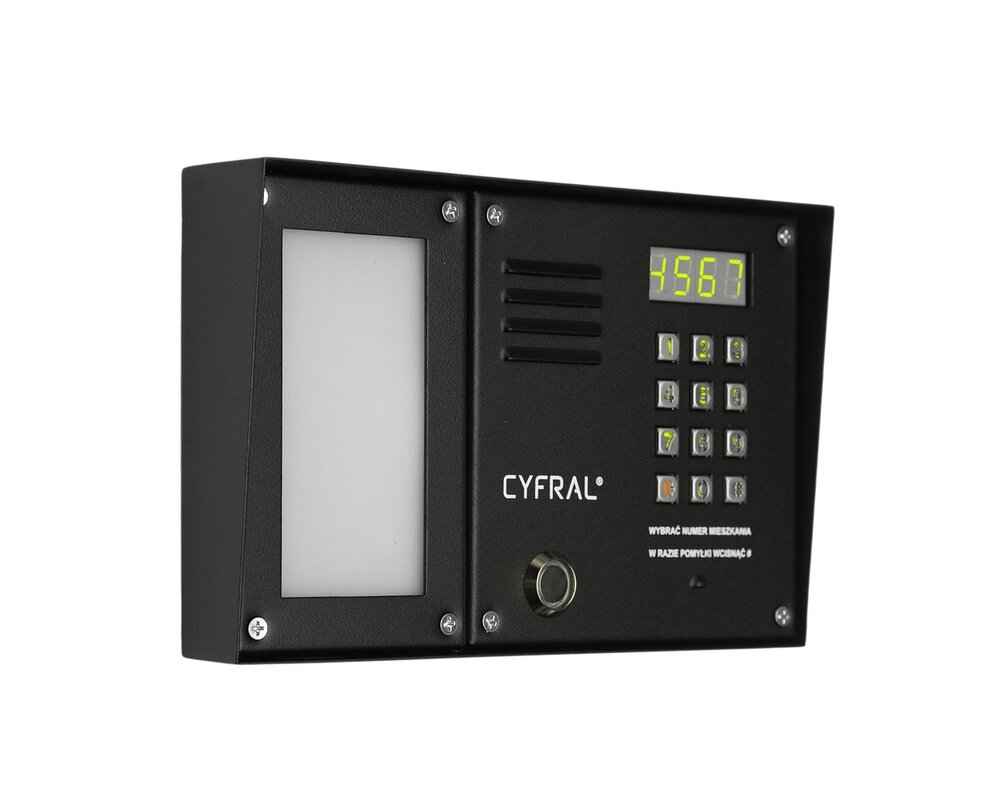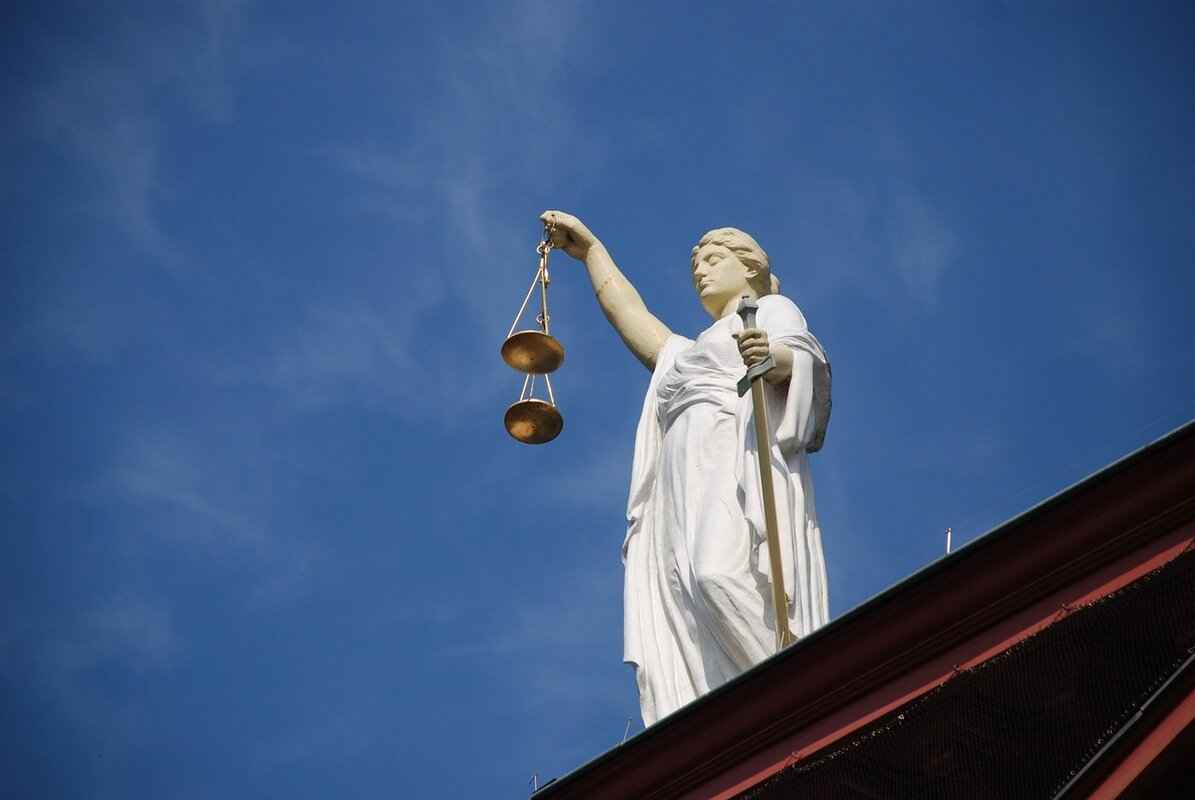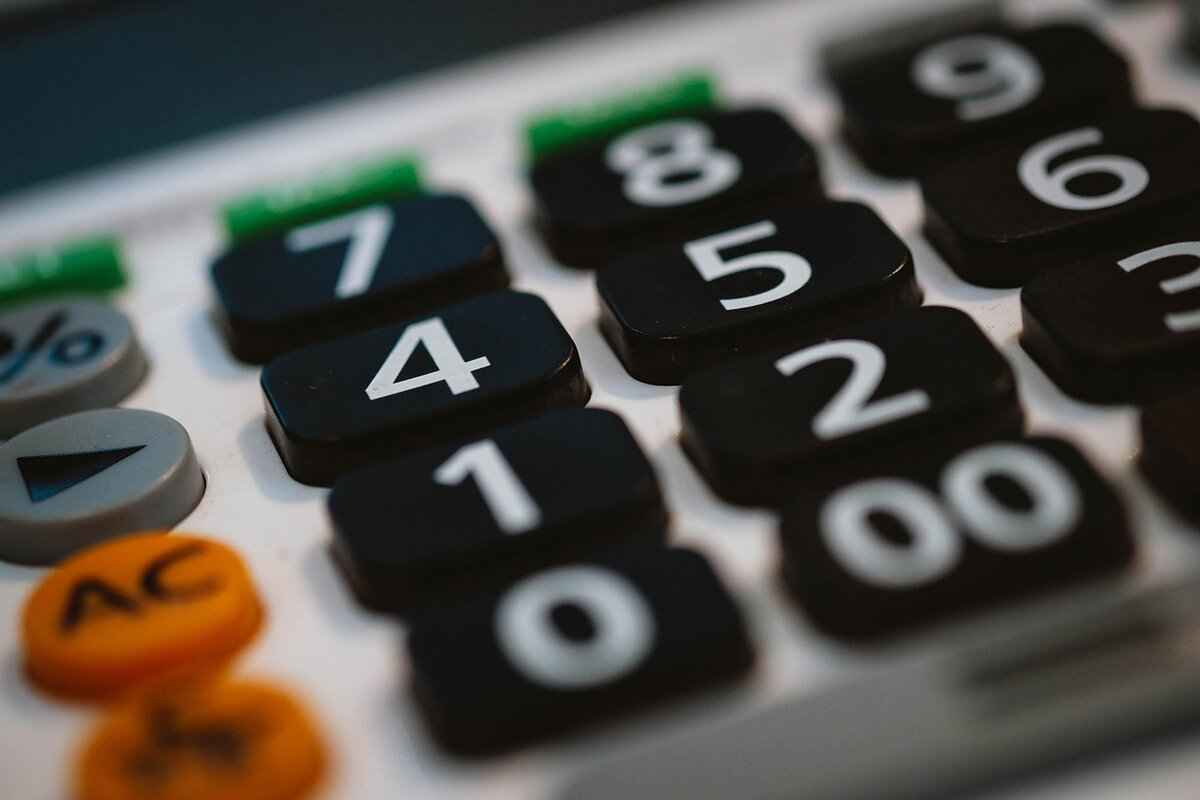This article delves into the implications of tenants failing to pay their utility bills, examining the legal responsibilities involved, the potential consequences, and the options available for both landlords and tenants.
Understanding Tenant Responsibilities
Typically, tenants are responsible for paying utility bills as outlined in their lease agreements. However, the specifics can vary significantly based on local laws and the terms of the lease. It is essential for tenants to understand their obligations regarding utilities to avoid any legal complications.
Lease Agreements and Utility Payments
The lease agreement is a critical document that defines who is responsible for utility payments. Clear understanding of this document can prevent disputes and clarify obligations for both parties. Here are some common structures:
- All-Inclusive Rent: In this scenario, landlords cover all utility costs, which simplifies billing but may result in higher monthly rent.
- Separate Utility Bills: In this arrangement, tenants receive direct bills from utility companies, allowing them to manage their usage and expenses independently.
State-Specific Laws on Utility Payments
It is vital to note that laws governing utility payments differ by state. These laws impact tenants’ rights and landlords’ obligations when bills go unpaid, making it essential for both parties to be aware of local regulations.
Consequences of Non-Payment
Failure to pay utility bills can lead to various consequences that affect both the tenant’s living conditions and the landlord’s financial interests:
- Utility Shut-Offs: Utility companies may disconnect services for non-payment, resulting in uncomfortable living conditions for tenants and potential lease violations.
- Impact on Credit Scores: Unpaid utility bills can adversely affect tenants’ credit scores, complicating future housing or loan applications.
Landlord’s Options for Addressing Non-Payment
Landlords have several avenues to explore when tenants do not pay their utility bills:
- Negotiating Payment Plans: Landlords may opt to negotiate payment plans with tenants, allowing them to catch up on missed payments without facing immediate eviction.
- Legal Action and Eviction: If non-payment continues, landlords may consider legal action, including eviction proceedings, which can be both lengthy and costly.
Tenant Rights and Protections
Tenants are entitled to certain rights that protect them in cases of utility non-payment:
- Protection from Retaliation: Many states have laws preventing landlords from retaliating against tenants who report utility issues or refuse to pay for services not provided.
- Access to Legal Resources: Tenants facing challenges with unpaid utility bills can access legal resources and assistance programs to help navigate their situation effectively.
Preventive Measures for Tenants
To avoid issues related to utility payments, tenants can take proactive steps:
- Budgeting for Utilities: Effective budgeting can help tenants manage their utility costs, ensuring timely bill payments and avoiding service disruptions.
- Open Communication with Landlords: Maintaining open communication with landlords about financial difficulties can foster understanding and lead to mutually beneficial solutions.
In conclusion, understanding the implications of failing to pay utility bills is crucial for both tenants and landlords. By being aware of their responsibilities, rights, and the potential consequences, both parties can navigate these situations more effectively.

Understanding Tenant Responsibilities
is a crucial aspect of any rental agreement. Typically, tenants are expected to pay utility bills as part of their lease obligations. However, the specific terms can vary significantly based on local laws and the particulars outlined in the lease agreement. This section aims to clarify the responsibilities of tenants regarding utility payments and the implications of non-payment.
In most cases, the lease agreement will explicitly state whether tenants are responsible for utilities such as electricity, water, gas, and internet. It is essential for tenants to thoroughly read and understand their lease to avoid any misunderstandings. Here are some common scenarios regarding utility payments:
- All-Inclusive Rent: In this arrangement, the landlord covers all utility costs within the monthly rent. This can simplify budgeting for tenants but may result in higher rental costs.
- Separate Utility Bills: This structure allows tenants to receive individual bills from utility providers. It gives tenants more control over their consumption and expenses, but they must manage their payments independently.
- Hybrid Models: Some leases may incorporate a combination of both methods, where certain utilities are included in the rent while others are billed separately.
Understanding these payment structures is vital for both landlords and tenants to avoid disputes. Local laws also play a significant role in determining responsibilities. For instance, some states have regulations that dictate how landlords must handle utility payments, including requirements for notification before service disconnection.
Consequences of Non-Payment can be severe. If tenants fail to pay their utility bills, they may face service shut-offs, which can lead to uncomfortable living conditions and potential lease violations. Additionally, unpaid utility bills can negatively impact tenants’ credit scores, making it challenging to secure future housing or loans.
Landlords have a range of options when tenants do not fulfill their utility payment obligations. They may choose to negotiate payment plans, allowing tenants to catch up on missed payments without immediate eviction. However, if non-payment persists, landlords might resort to legal action, including eviction proceedings, which can be both lengthy and costly.
It is also important to recognize that tenants have rights that protect them in cases of utility non-payment. Many states have laws that prevent landlords from retaliating against tenants who report issues with utilities or refuse to pay for services that have not been provided. Tenants can access various legal resources and assistance programs to help them navigate these challenges effectively.
To avoid utility payment issues, tenants can take proactive measures. Effective budgeting for utilities is essential to ensure timely payments and avoid service disruptions. Additionally, maintaining open communication with landlords regarding any financial difficulties can foster understanding and lead to mutually beneficial solutions.
In summary, understanding tenant responsibilities regarding utility payments is crucial in maintaining a harmonious landlord-tenant relationship. By being aware of their obligations, the potential consequences of non-payment, and their rights, tenants can better navigate the complexities of rental agreements and utility management.

Lease Agreements and Utility Payments
The lease agreement serves as a foundational document that defines the relationship between landlords and tenants, particularly regarding financial responsibilities, including utility payments. Understanding the terms outlined in this agreement is essential for both parties to avoid misunderstandings and disputes. In this section, we will delve into the various aspects of lease agreements that pertain to utility payments, emphasizing the importance of clarity in these contracts.
When it comes to utility payments, a well-drafted lease agreement should clearly specify who is responsible for paying which utilities. This clarity helps prevent potential disputes and ensures that both landlords and tenants understand their obligations. Without explicit terms, confusion may arise, leading to financial strain and legal complications.
Lease agreements can outline several different structures for utility payments. Understanding these structures can help tenants and landlords make informed decisions:
- All-Inclusive Rent: In this scenario, the landlord covers all utility costs, which simplifies billing but may result in higher monthly rent. Tenants should be aware that this could lead to increased costs if utility usage is high.
- Separate Utility Bills: Here, tenants receive individual bills from utility companies. This arrangement allows tenants to manage their energy consumption actively, potentially leading to lower costs if they are diligent about their usage.
- Hybrid Arrangements: Some lease agreements may combine both structures, where certain utilities are included in the rent while others are billed separately. It is crucial for tenants to understand which utilities fall into each category.
Legal regulations governing utility payments can vary significantly from state to state. Some states have specific laws that mandate landlords to provide certain utilities, while others may place the burden entirely on tenants. Therefore, it is vital for both parties to familiarize themselves with local laws to ensure compliance and protect their rights.
Failure to pay utility bills can lead to serious consequences for tenants. Utility companies may disconnect services, resulting in uncomfortable living conditions. Additionally, unpaid utility bills can negatively impact a tenant’s credit score, making it harder for them to secure future housing or loans.
When tenants fail to pay utility bills, landlords have several options to address the situation:
- Negotiating Payment Plans: Landlords may opt to negotiate payment arrangements with tenants to help them catch up on overdue bills without resorting to eviction.
- Legal Action and Eviction: If non-payment persists, landlords may consider legal action, which could involve eviction proceedings. This process can be lengthy and costly, emphasizing the importance of clear communication and understanding in the lease agreement.
Tenants have rights that protect them in cases of utility non-payment. Many states have laws preventing landlords from retaliating against tenants who report issues with utilities or refuse to pay for services that were not provided. Understanding these rights can empower tenants to advocate for themselves effectively.
To avoid issues with utility payments, tenants can take proactive steps:
- Budgeting for Utilities: Effective budgeting can help tenants manage utility costs, ensuring timely payments and avoiding service disruptions.
- Open Communication with Landlords: Maintaining open lines of communication with landlords regarding financial difficulties can foster understanding and lead to mutually beneficial solutions.
In summary, the lease agreement plays a crucial role in defining utility payment responsibilities. By understanding the terms of this document and the implications of utility payments, both landlords and tenants can navigate their obligations more effectively, minimizing the risk of disputes and fostering a harmonious rental relationship.
Common Utility Payment Structures
Understanding the different utility payment structures in rental agreements is essential for both tenants and landlords. These structures can significantly influence the financial dynamics of renting a property. The most common arrangements include all-inclusive rent, separate utility bills, and a combination of both. Each option has its own implications, and understanding these can help prevent disputes and ensure clarity in responsibilities.
In an all-inclusive rent scenario, the landlord covers all utility costs, which simplifies the billing process for tenants. This arrangement typically results in a higher monthly rent, as the landlord incorporates estimated utility expenses into the rent amount. While this structure offers convenience, it may lead to higher costs for tenants who are conscientious about their utility usage. Additionally, tenants may have less incentive to conserve energy and water when they are not directly responsible for the bills.
On the other hand, when utilities are billed separately, tenants receive direct bills from utility companies. This allows tenants to manage their usage and costs independently, which can encourage more responsible consumption. Tenants may find it beneficial to monitor their utility usage, as they can directly see the financial impact of their consumption habits. However, this structure also means that tenants bear the risk of unexpected spikes in utility costs, particularly during extreme weather conditions.
Some rental agreements may incorporate a combination of both all-inclusive rent and separate utility bills. For instance, a landlord might cover basic utilities such as water and trash removal while requiring tenants to pay for electricity and gas. This hybrid model can provide a balance between convenience and accountability, allowing tenants to have some control over their utility expenses while still enjoying the simplicity of included services.
It is crucial for both tenants and landlords to thoroughly understand the lease agreement as it outlines the specific terms regarding utility payments. The lease should clearly indicate which utilities are included in the rent and which are the tenant’s responsibility. This clarity can prevent misunderstandings and disputes between parties. Tenants should carefully review their lease agreements and seek clarification on any terms that are unclear.
Additionally, the laws governing utility payments can vary significantly by state. Some states have regulations that protect tenants from excessive utility charges or require landlords to provide certain utilities. Understanding these laws is vital for both parties to ensure compliance and protect their rights. Tenants should be aware of their rights regarding utility payments and seek legal advice if they feel their rights are being violated.
In summary, the structure of utility payments in rental agreements can vary widely, impacting both tenants and landlords. Whether it is an all-inclusive rent, separate utility bills, or a combination of both, understanding the implications of each structure is crucial. By carefully reviewing lease agreements and being aware of state-specific laws, both parties can foster a more transparent and harmonious rental experience.
All-Inclusive Rent
arrangements have become increasingly popular in the rental market, offering both landlords and tenants a simplified approach to managing housing costs. In this scenario, landlords take on the responsibility of covering all utility expenses, including electricity, water, gas, and sometimes even internet services. This arrangement can significantly ease the burden of monthly budgeting for tenants, as they are not required to deal with multiple utility bills.
However, while simplifies billing, it often results in higher monthly rent payments for tenants. This increase is typically due to landlords factoring in the cost of utilities into the overall rental price. Therefore, tenants may end up paying more than they would if they were responsible for their own utility bills. It’s essential for tenants to consider whether the convenience of an all-inclusive rent structure justifies the potentially higher costs.
From a landlord’s perspective, offering all-inclusive rent can be a strategic decision. It can attract a broader range of tenants, particularly those who prefer the predictability of fixed monthly costs. Additionally, landlords have the advantage of controlling utility usage, as they can implement measures to encourage tenants to conserve energy and water. However, this arrangement also places a significant financial risk on landlords; if tenants use utilities excessively, the costs can quickly escalate, impacting the landlord’s bottom line.
When considering an all-inclusive rent agreement, both parties should carefully review the lease terms. It is crucial to understand what utilities are included and whether there are any caps on usage. For instance, some landlords may include a clause that allows for an additional charge if utility usage exceeds a certain threshold. This is an essential detail that can prevent disputes later on.
In addition to understanding the financial implications, tenants should also be aware of their rights regarding utility services in an all-inclusive rent scenario. For instance, in many states, landlords are required to maintain essential services, including utilities. If a landlord fails to provide these services, tenants may have legal recourse, which can include withholding rent until the issue is resolved.
Furthermore, tenants should proactively communicate with their landlords regarding any issues with utilities. If there are concerns about excessive charges or service interruptions, open dialogue can lead to mutually beneficial solutions. For example, if a tenant notices unusually high utility usage, they should report this to the landlord, who can then investigate potential issues, such as leaks or faulty appliances.
Ultimately, the decision to enter into an all-inclusive rent agreement should be made with careful consideration. Tenants should weigh the benefits of convenience and predictability against the potential for higher costs. Likewise, landlords must evaluate their ability to manage utility expenses while providing attractive rental options.
In conclusion, offers a unique solution for both landlords and tenants, streamlining the rental process and providing a clear understanding of monthly expenses. However, it is essential for both parties to remain informed and engaged to ensure a successful and harmonious rental relationship.
Separate Utility Bills
When tenants are responsible for their utility bills, they receive direct bills from the utility companies. This arrangement allows them to manage their usage and costs independently, fostering a sense of accountability and financial awareness. However, there are several implications and responsibilities that come with this setup.
Receiving separate bills means that tenants have the power to control their consumption. By monitoring their usage, they can make informed decisions to reduce costs, such as turning off lights, using energy-efficient appliances, or being mindful of water usage. This can lead to significant savings over time.
Under most lease agreements, tenants are legally obligated to pay their utility bills on time. Failure to do so can result in various consequences, including late fees, service disconnections, and negative impacts on credit scores. It is crucial for tenants to understand their responsibilities to avoid these pitfalls.
- Utility Shut-Offs: If tenants neglect to pay their utility bills, providers may disconnect services. This can create uncomfortable living conditions and may even violate lease terms.
- Credit Score Impact: Unpaid utility bills can be reported to credit bureaus, potentially damaging tenants’ credit scores and affecting their ability to secure future housing or loans.
Landlords play a significant role in this process. They should clearly outline the responsibilities regarding utility payments in the lease agreement. If tenants fail to pay, landlords have several options:
- Negotiating Payment Plans: Landlords may offer tenants a chance to create a payment plan, allowing them to catch up on overdue bills without facing immediate eviction.
- Legal Action: If non-payment continues, landlords may resort to legal measures, including eviction proceedings. This can be a lengthy and costly process for both parties.
Tenants have rights that can protect them in cases of utility non-payment. Many states have laws preventing landlords from taking retaliatory actions against tenants who report utility issues or refuse to pay for services that were not provided. Understanding these rights is essential for tenants facing difficulties.
Tenants struggling with unpaid utility bills can access various legal resources and assistance programs. These resources can provide guidance on navigating disputes with landlords and understanding local laws regarding utility payments.
To avoid issues with utility payments, tenants can take proactive measures:
- Budgeting for Utilities: Creating a budget that includes utility costs can help tenants manage their finances effectively, ensuring timely bill payments.
- Open Communication with Landlords: Maintaining open lines of communication with landlords about any financial difficulties can foster understanding and lead to mutually beneficial solutions.
In conclusion, while separate utility bills empower tenants to manage their costs, they also come with significant responsibilities. Understanding these responsibilities and the potential consequences of non-payment can help tenants navigate their obligations effectively.
State-Specific Laws on Utility Payments
Understanding the laws governing utility payments is essential for both tenants and landlords, as these regulations can vary widely from state to state. This variation can significantly impact tenants’ rights and landlords’ obligations, especially in cases where utility bills go unpaid. In this article, we will delve into the intricacies of state-specific laws regarding utility payments, exploring how these laws affect rental agreements and the consequences of non-payment.
Tenant Responsibilities and Lease Agreements
Typically, tenants are responsible for paying utility bills as outlined in their lease agreements. However, the specific terms can differ based on local laws and the details of the lease. Some states may require landlords to include certain provisions in their leases, such as clear definitions of who is responsible for utility payments. This clarity helps prevent disputes and ensures that both parties understand their obligations.
Common Utility Payment Structures
- All-Inclusive Rent: In this arrangement, landlords cover all utility costs. While this can simplify billing, it often results in higher monthly rent for tenants.
- Separate Utility Bills: When utilities are billed separately, tenants receive direct bills from utility companies. This allows tenants to manage their usage and costs more effectively.
State Variations in Utility Payment Laws
Each state has its own set of laws relating to utility payments. For example, some states mandate that landlords must provide tenants with a notice before initiating utility shut-offs due to non-payment. Others may have specific regulations that protect tenants from being disconnected during extreme weather conditions. Understanding these state-specific laws is crucial for both tenants and landlords to navigate their rights and responsibilities effectively.
Consequences of Non-Payment
When tenants fail to pay their utility bills, various consequences can arise. Utility companies may shut off services for non-payment, leading to uncomfortable living conditions and potential lease violations. Additionally, unpaid utility bills can negatively impact tenants’ credit scores, making it challenging for them to secure future housing or loans.
Landlord’s Options for Addressing Non-Payment
Landlords have several options when dealing with tenants who do not pay their utility bills. These options can include:
- Negotiating Payment Plans: Landlords may choose to negotiate payment plans with tenants, allowing them to catch up on missed payments without facing immediate eviction.
- Legal Action and Eviction: If non-payment persists, landlords may consider legal action, including eviction proceedings. This can be a lengthy and costly process, emphasizing the importance of clear communication and negotiation.
Tenant Rights and Protections
Tenants have rights that protect them in cases of utility non-payment. Many states have laws that prevent landlords from retaliating against tenants who report issues with utilities or refuse to pay for services not provided. Tenants facing difficulties can access legal resources and assistance programs to help them navigate their situations effectively.
Preventive Measures for Tenants
To avoid issues with utility payments, tenants can take proactive steps, such as:
- Effective Budgeting: By budgeting for utilities, tenants can manage their costs and ensure timely payments.
- Open Communication with Landlords: Maintaining open lines of communication with landlords regarding any financial difficulties can foster understanding and lead to mutually beneficial solutions.
In conclusion, understanding state-specific laws on utility payments is vital for both tenants and landlords. By being aware of their rights and responsibilities, both parties can work together to ensure a positive rental experience.

Consequences of Non-Payment
When tenants fail to pay their utility bills, various consequences may arise, affecting both the tenant’s living situation and the landlord’s financial interests. Understanding these consequences is crucial for both parties involved in a rental agreement.
Non-payment of utility bills can lead to a cascade of issues that impact not only the tenant but also the landlord. It is essential to explore these repercussions in detail.
One of the most immediate consequences of failing to pay utility bills is the potential for utility shut-offs. Service providers, such as electricity and water companies, typically have policies in place that allow them to disconnect services after a certain period of non-payment. This can create uncomfortable living conditions for tenants, leading to issues such as lack of heating, cooling, or access to clean water. Moreover, a shut-off can be considered a violation of the lease agreement, giving landlords grounds for eviction.
Unpaid utility bills can also negatively affect a tenant’s credit score. Utility companies may report non-payment to credit bureaus, which can hinder a tenant’s ability to secure future housing, loans, or even employment. A poor credit score can create long-term financial challenges, making it vital for tenants to prioritize their utility payments.
Landlords may also face legal ramifications if they fail to address non-payment issues appropriately. Depending on state laws, landlords might be required to follow specific procedures before taking action against tenants. This can include providing written notice to tenants about overdue bills, which must be adhered to in order to avoid potential legal disputes.
When tenants do not pay their utility bills, landlords may find themselves bearing the financial burden. In cases where utilities are included in the rent, landlords must cover these costs, which can strain their finances. Additionally, unresolved utility debts may lead to increased operational costs, as landlords may need to invest in legal proceedings or collection efforts to recover lost funds.
In extreme cases, ongoing non-payment of utility bills can result in eviction. Landlords may initiate legal proceedings to remove tenants who consistently fail to meet their financial obligations. This process can be lengthy and costly, but it is often seen as a necessary step to protect the landlord’s investment.
Landlords are not without options when it comes to dealing with tenants who fail to pay utility bills. Understanding these options can help in navigating the situation effectively.
Many landlords opt to negotiate payment plans with tenants who are struggling to pay their utility bills. This approach allows tenants to catch up on missed payments over time, reducing the likelihood of eviction and maintaining a positive landlord-tenant relationship.
It is crucial for landlords to document all communication regarding utility payments. Keeping a record of conversations and agreements can serve as evidence should legal action become necessary. This documentation can also help clarify expectations and responsibilities for both parties.
To avoid the consequences of non-payment, tenants can take proactive steps to manage their utility payments.
Effective budgeting is key to ensuring timely utility payments. Tenants should allocate a specific portion of their income to cover utility costs, helping to avoid financial pitfalls.
Maintaining open lines of communication with landlords regarding financial difficulties can foster understanding and lead to mutually beneficial solutions. Tenants should feel empowered to discuss their situations honestly to prevent misunderstandings and potential conflicts.
Utility Shut-Offs
are a significant concern for both tenants and landlords. When tenants fail to pay their utility bills, utility companies have the right to discontinue services, which can create serious hardships for those living in the affected units. This section delves into the implications of utility shut-offs, the legal framework surrounding them, and the potential consequences for all parties involved.
In many lease agreements, tenants are explicitly responsible for paying utility bills. Failure to meet this obligation can lead to service interruptions, which not only disrupt the daily lives of tenants but can also result in lease violations. It’s crucial for tenants to understand that non-payment can lead to a series of escalating issues, including the loss of essential services such as electricity, water, and gas.
When a utility company initiates a shut-off, it typically follows a series of warnings and notifications. Most companies will attempt to contact the tenant multiple times before taking such drastic action. However, if payments remain overdue, the utility company may proceed with the shut-off, leading to uncomfortable living conditions. For instance, without electricity, tenants may face challenges such as lack of heating in winter or inability to refrigerate food.
From a legal standpoint, the implications of utility shut-offs can be significant. In many states, laws dictate that landlords must provide habitable living conditions, which include access to essential utilities. If a utility shut-off occurs due to a tenant’s non-payment, landlords may find themselves in a difficult position. They could be held liable if the shut-off affects the tenant’s health or safety, leading to potential legal repercussions.
Moreover, the impact of a utility shut-off extends beyond immediate living conditions. Unpaid utility bills can adversely affect a tenant’s credit score. Utility companies often report unpaid accounts to credit bureaus, which can hinder a tenant’s ability to secure future housing or loans. This long-term consequence can create a cycle of financial instability, making it increasingly difficult for tenants to recover from their initial financial missteps.
For landlords, the prospect of a utility shut-off can be equally concerning. It not only affects the tenant’s living conditions but can also damage the landlord’s reputation and property value. Landlords are encouraged to maintain open lines of communication with tenants regarding utility payments. If a tenant is struggling to pay their bills, landlords may explore options such as negotiating payment plans to help them catch up without resorting to eviction.
Additionally, landlords should familiarize themselves with state-specific laws regarding utility payments and shut-offs. Some states have enacted regulations that protect tenants from utility shut-offs under certain circumstances, such as during extreme weather conditions or if the tenant is facing financial hardship. Understanding these regulations can help landlords navigate complex situations and avoid potential legal pitfalls.
In summary, utility shut-offs represent a serious issue that can have far-reaching implications for both tenants and landlords. Tenants must recognize their responsibilities regarding utility payments, while landlords should strive to foster a supportive environment that encourages open communication and proactive problem-solving. By working together, both parties can mitigate the risks associated with utility non-payment and ensure a more stable living situation.
Impact on Credit Scores
When tenants fail to pay their utility bills, the repercussions extend far beyond immediate inconvenience. One of the most significant impacts is on their credit scores, which can have long-term implications for their financial health and housing prospects.
Understanding Credit Scores
Credit scores are numerical representations of a person’s creditworthiness, calculated based on their credit history, payment history, and overall debt. These scores typically range from 300 to 850, with higher scores indicating better creditworthiness. Utility companies often report unpaid bills to credit bureaus, which can lead to a decline in a tenant’s credit score.
How Unpaid Utility Bills Affect Credit
- When a utility bill remains unpaid for an extended period, the utility company may send the account to collections.
- Once in collections, this negative mark can be reported to credit bureaus, leading to a significant drop in credit scores.
- Even a single late payment can adversely impact a credit score, which can take years to recover from.
Consequences of a Lower Credit Score
A lower credit score can hinder a tenant’s ability to secure future housing. Landlords and property management companies often conduct credit checks as part of the rental application process. A poor credit score may lead to:
- Increased difficulty in obtaining rental agreements.
- Higher security deposits or co-signers being required.
- Potential denial of rental applications altogether.
Impact on Loan Applications
In addition to housing challenges, a low credit score can affect a tenant’s ability to secure loans. Whether applying for a car loan, personal loan, or mortgage, lenders assess credit scores to determine the risk of lending. A lower score can result in:
- Higher interest rates, leading to increased overall costs.
- Loan applications being denied outright.
Mitigating the Impact of Unpaid Utility Bills
Tenants facing difficulties paying utility bills should take proactive steps to mitigate potential damage to their credit scores:
- Open Communication: Tenants should communicate with utility providers as soon as they anticipate trouble paying bills. Many companies offer payment plans or assistance programs.
- Budgeting: Creating a budget that includes utility costs can help tenants manage their expenses more effectively.
- Monitoring Credit Scores: Regularly checking credit reports can help tenants stay informed about their credit status and address inaccuracies.
Legal Protections and Resources
Tenants should also be aware of their rights. Various laws protect consumers from unfair collection practices. If a tenant believes a utility company has reported inaccurate information to credit bureaus, they have the right to dispute these claims. Additionally, legal resources and tenant advocacy groups can provide guidance on navigating these challenges.
In conclusion, unpaid utility bills can have severe repercussions for tenants, particularly regarding their credit scores. Understanding the implications and taking proactive measures can help tenants protect their financial futures and maintain access to housing and credit. It’s essential for tenants to stay informed and seek assistance when needed to avoid falling into a cycle of debt and poor credit.

Landlord’s Options for Addressing Non-Payment
Landlords have several options when tenants do not pay their utility bills, ranging from negotiation to legal action, depending on the situation. Understanding these options is essential for landlords to protect their interests while navigating the complexities of tenant relationships.
When a tenant fails to pay their utility bills, landlords face a challenging situation. The first step is to review the lease agreement to determine the specific obligations regarding utility payments. Depending on the terms, landlords may have different avenues to pursue.
One of the most effective approaches is to initiate open communication with the tenant. This can often lead to a resolution without escalating the situation. Landlords might consider:
- Discussing Payment Plans: Proposing a structured payment plan can help tenants catch up on overdue bills without the stress of immediate payment.
- Offering Temporary Relief: In cases of genuine financial hardship, landlords might choose to offer temporary relief or defer payments, fostering goodwill and maintaining a positive landlord-tenant relationship.
It is crucial for landlords to keep detailed records of all communications regarding utility payments. This documentation can be vital in case further action is required, as it provides evidence of attempts to resolve the issue amicably.
If negotiation fails and the tenant continues to neglect their utility payments, landlords may need to consider legal action. This could involve:
- Issuing a Formal Notice: Depending on state laws, landlords may be required to provide formal notice to the tenant regarding the unpaid bills, outlining the potential consequences of continued non-payment.
- Filing for Eviction: If the situation does not improve, landlords may initiate eviction proceedings. This process can be lengthy and costly, requiring adherence to local laws and regulations.
It’s essential for landlords to be aware of state-specific laws governing utility payments and tenant rights. These laws can significantly impact the options available to landlords. For instance, some states may have regulations that limit the ability to terminate a lease for unpaid utility bills, requiring landlords to follow specific protocols before taking action.
Given the complexities involved, landlords may benefit from consulting with an attorney who specializes in landlord-tenant law. Legal professionals can provide guidance on the best course of action based on the unique circumstances of each case, ensuring compliance with all applicable laws.
To avoid issues with unpaid utility bills in the future, landlords can implement several proactive strategies:
- Screening Tenants: Conduct thorough background checks to assess a potential tenant’s financial responsibility before signing a lease.
- Clear Lease Agreements: Ensure that lease agreements clearly outline the responsibilities regarding utility payments to prevent misunderstandings.
- Regular Communication: Maintain open lines of communication with tenants to address any potential issues before they escalate.
In summary, landlords have various options to address non-payment of utility bills, ranging from negotiation to legal action. Understanding these options and implementing preventive measures can help maintain a positive relationship with tenants while protecting the landlord’s financial interests.
Negotiating Payment Plans
When tenants face financial difficulties, it can lead to missed utility payments, creating tension between landlords and tenants. One effective strategy for landlords is to consider with tenants. This approach can help tenants catch up on overdue utility bills while avoiding the severe consequences of immediate eviction.
Payment plans are structured arrangements that allow tenants to repay their outstanding utility bills over a specified period. This method not only provides tenants with a feasible way to manage their debts but also helps landlords maintain a steady cash flow and reduce the risk of prolonged vacancy.
- Financial Relief: Payment plans give tenants the opportunity to spread their payments over time, making it easier for them to manage their finances.
- Avoiding Eviction: By entering into a payment plan, tenants can avoid the immediate threat of eviction, allowing them to remain in their homes while they work through their financial challenges.
- Preserving Credit Scores: Timely payments under a negotiated plan can help tenants avoid negative impacts on their credit scores, which can be crucial for future housing and financial opportunities.
- Maintaining Tenant Relationships: By being flexible and accommodating, landlords can foster goodwill and strengthen their relationships with tenants.
- Reducing Turnover Costs: Keeping tenants in place can save landlords the significant costs associated with turnover, including advertising, repairs, and lost rent.
- Ensuring Cash Flow: Payment plans can help landlords maintain a flow of income, even if it is reduced temporarily, which can be vital for covering property-related expenses.
When creating a payment plan, it’s essential for both parties to agree on terms that are realistic and manageable. Here are some key considerations:
1. Determine the total amount owed.2. Discuss the tenant’s financial situation to establish a reasonable repayment timeline.3. Agree on a monthly payment amount that fits within the tenant's budget.4. Document the agreement in writing, specifying the payment schedule and any penalties for missed payments.
Landlords should be aware of local laws regarding payment plans and tenant rights. Some states have specific regulations that govern the negotiation of payment plans, including requirements for documentation and communication. It is advisable for landlords to consult legal counsel to ensure compliance with applicable laws.
Effective communication is crucial when negotiating payment plans. Landlords should approach discussions with empathy and understanding, recognizing that financial hardships can happen to anyone. By maintaining an open dialogue, landlords can better assess the tenant’s situation and work towards a mutually beneficial agreement.
Negotiating payment plans can be an effective tool for landlords facing tenants who have fallen behind on utility payments. By providing a structured approach to debt repayment, both parties can benefit from improved relationships, financial stability, and a more harmonious living situation. Ultimately, open communication and flexibility are key to successful negotiations.
Legal Action and Eviction
When tenants fail to meet their financial obligations, particularly regarding utility bills, landlords face a challenging situation. The legal ramifications of non-payment can be extensive, leading to a complex process that may involve eviction. Understanding this process is crucial for both landlords and tenants to navigate their rights and responsibilities effectively.
In many cases, lease agreements stipulate that tenants are responsible for paying utility bills. When these bills go unpaid, landlords may find themselves in a difficult position, balancing the need to maintain their property and the financial strain of lost revenue. If non-payment persists, landlords often consider legal action as a necessary step to resolve the issue.
Before proceeding with eviction, landlords typically explore all available options. This may include negotiating payment plans or offering temporary relief to tenants experiencing financial hardship. Such approaches can foster goodwill and potentially prevent the need for legal action. However, if these efforts fail, landlords may feel compelled to initiate eviction proceedings.
Eviction is a legal process that can be both lengthy and costly. It often begins with the landlord serving a formal notice to the tenant, outlining the breach of the lease agreement due to non-payment of utilities. This notice must comply with local laws, which dictate the time frame for tenants to respond or remedy the situation. If the tenant does not take action, the landlord can file an eviction lawsuit in the appropriate court.
| Step | Description |
|---|---|
| 1. Serve Notice | Landlord issues a formal notice to the tenant regarding non-payment. |
| 2. File Eviction Lawsuit | If no response, the landlord files for eviction in court. |
| 3. Court Hearing | A hearing is scheduled where both parties can present their case. |
| 4. Judgment | The court issues a judgment, which may favor the landlord or tenant. |
| 5. Eviction | If judgment favors the landlord, an eviction may be scheduled. |
The duration of the eviction process varies by state and can take anywhere from a few weeks to several months. During this time, tenants may have opportunities to contest the eviction or negotiate alternative arrangements. It’s important to note that landlords must adhere to specific legal procedures throughout this process, as failure to do so can result in delays or dismissal of the case.
Moreover, the financial implications for landlords can be significant. Legal fees, court costs, and potential loss of rental income can accumulate quickly. Additionally, if the eviction is successful, landlords may face the challenge of finding new tenants, which can also lead to financial strain.
In conclusion, while landlords have the right to pursue legal action for non-payment of utility bills, it is essential to approach the situation with caution and consideration. Exploring alternatives before resorting to eviction can lead to better outcomes for both parties involved. Understanding the legal framework and potential consequences helps landlords make informed decisions while ensuring that tenants are aware of their rights and responsibilities.

Tenant Rights and Protections
Understanding tenant rights is crucial for both tenants and landlords, especially in cases of utility non-payment. Tenants are often concerned about the repercussions of failing to pay utility bills, and it is essential to know that various laws exist to protect them from unfair treatment.
Legal Protections Against Retaliation
One of the most significant protections tenants have is against retaliatory actions by landlords. Many states have enacted laws that prohibit landlords from taking adverse actions against tenants who report issues related to utilities or who refuse to pay for services that have not been provided. This means that if a tenant is facing an unjust utility charge or if the utilities are not functioning properly, they cannot be evicted or penalized simply for voicing their concerns.
Access to Legal Resources
Tenants facing issues related to unpaid utility bills can access a variety of legal resources. Many local and state organizations offer assistance programs that provide legal advice and representation. These organizations can help tenants understand their rights and navigate the complexities of landlord-tenant laws. Additionally, some legal aid societies specialize in housing issues, ensuring that tenants receive the help they need.
Understanding Lease Agreements
The lease agreement is a crucial document that outlines the responsibilities of both parties regarding utility payments. Tenants should carefully review their lease to understand what utilities they are responsible for paying. In cases where the lease is unclear or ambiguous, tenants have the right to seek clarification from their landlords. If disputes arise, legal assistance can help tenants enforce their rights under the lease.
State-Specific Laws and Regulations
Tenant rights regarding utility payments can vary significantly from state to state. For instance, some states have specific laws that require landlords to maintain essential utilities, while others may allow landlords to charge late fees for unpaid bills. It is essential for tenants to familiarize themselves with local laws to understand their rights fully. This knowledge can empower tenants to advocate for themselves when faced with utility payment issues.
Negotiating with Landlords
If a tenant is struggling to pay utility bills, open communication with the landlord is vital. Many landlords are willing to negotiate payment plans or provide temporary relief if they are informed of the tenant’s situation. Documenting these discussions can protect tenants in case of future disputes. A collaborative approach can often lead to mutually beneficial solutions that avoid eviction and maintain a stable living environment.
Preventive Measures for Tenants
- Budgeting: Effective budgeting can help tenants manage their finances better. By setting aside specific amounts for utilities, tenants can ensure they do not fall behind on payments.
- Regular Communication: Keeping an open line of communication with landlords can prevent misunderstandings. If a tenant anticipates difficulty in making a payment, informing the landlord early can lead to more favorable outcomes.
- Understanding Utility Usage: Being aware of how much energy and water is consumed can help tenants control their bills. Simple practices like turning off lights and using energy-efficient appliances can reduce costs.
Conclusion
In summary, tenants have various rights and protections when it comes to utility non-payment. Understanding these rights, accessing legal resources, and maintaining open communication with landlords can significantly empower tenants in managing their living situations. By being proactive and informed, tenants can navigate the complexities of utility payments while safeguarding their rights.
Protection from Retaliation
When it comes to the relationship between landlords and tenants, understanding the legal protections available is crucial, particularly concerning utility payments. One important aspect of tenant rights is the . This protection is designed to ensure that tenants can report issues without fear of negative repercussions from their landlords.
Many states have enacted laws that specifically prevent landlords from retaliating against tenants who exercise their rights. For instance, if a tenant reports a significant issue with utilities—such as lack of heating, water, or electricity—they are protected from eviction or other forms of retaliation. This means that landlords cannot increase rent, terminate leases, or take legal action simply because a tenant has reported a problem or refused to pay for services that were not provided.
Furthermore, these laws vary by state, but the underlying principle remains the same: tenants should feel safe to voice concerns about their living conditions. This legal framework is essential for maintaining a balanced landlord-tenant relationship and encourages tenants to advocate for their rights without fear.
In addition to protections against retaliation, tenants also have access to various legal resources. Many states provide assistance programs that help tenants understand their rights and navigate disputes with landlords. These resources can include legal aid societies, tenant unions, and government agencies dedicated to housing issues. By utilizing these resources, tenants can gain a clearer understanding of their rights and the appropriate steps to take if they face retaliation or other challenges related to utility payments.
It’s also important for tenants to document any issues with utilities and their communications with landlords. Keeping a record of correspondence, including emails and texts, can be invaluable if disputes arise. This documentation can serve as evidence if a tenant needs to prove that they reported an issue or that the landlord took retaliatory action.
Moreover, tenants should be aware of the specific laws in their state regarding retaliation. For example, some states have strict timelines within which a landlord must respond to a tenant’s complaint about utilities. Failure to comply with these regulations can further protect the tenant’s rights and strengthen their position in any potential disputes.
Additionally, tenants can take proactive steps to mitigate potential issues with utility payments. Establishing a clear line of communication with landlords can help address problems before they escalate. If a tenant anticipates difficulty in paying utility bills, informing the landlord and discussing possible solutions can often lead to a more amicable resolution.
Ultimately, understanding the legal protections against retaliation is essential for tenants. By being informed and proactive, tenants can better navigate their rights and responsibilities concerning utility payments and ensure that they maintain safe and habitable living conditions.
Access to Legal Resources
When tenants find themselves struggling with unpaid utility bills, it can create a challenging situation that affects their living conditions and financial stability. Fortunately, there are legal resources and assistance programs available to help tenants navigate these difficult circumstances. Understanding these options can empower tenants to take proactive steps toward resolving their issues.
Tenants facing utility payment challenges should first familiarize themselves with the legal resources available in their state. Many states have organizations that provide free or low-cost legal assistance to tenants. These organizations often offer advice on tenant rights, help with understanding lease agreements, and guidance on how to respond to eviction notices related to unpaid utility bills.
In addition to legal resources, various community assistance programs can provide financial support to tenants struggling to pay their utility bills. These programs may be offered by non-profit organizations, local government agencies, or utility companies themselves. Assistance can come in the form of:
- Emergency financial aid: Programs that provide one-time financial assistance to cover overdue utility bills.
- Payment plans: Options that allow tenants to pay off their bills over time, making it easier to manage their finances.
- Energy assistance programs: Federal or state programs designed to help low-income households with energy costs.
Tenant advocacy groups play a crucial role in supporting tenants facing utility payment issues. These organizations work to protect tenant rights and can provide valuable resources, including:
- Legal education: Workshops and resources that educate tenants about their rights and responsibilities.
- Direct representation: Some advocacy groups offer legal representation for tenants in disputes with landlords or utility companies.
- Policy advocacy: Efforts to influence local and state policies that impact tenant rights and utility regulations.
To access legal assistance, tenants should take the following steps:
- Research local resources: Look for legal aid organizations and tenant advocacy groups in your area.
- Gather documentation: Collect relevant documents, such as lease agreements, utility bills, and any correspondence with landlords or utility companies.
- Contact organizations: Reach out to legal aid organizations or advocacy groups to inquire about available services and how to apply.
In today’s digital age, many legal resources are available online. Websites like Legal Services Corporation or LawHelp.org can connect tenants with local legal aid organizations and provide information on tenant rights. Additionally, utility companies may have their own resources or customer service representatives who can assist tenants in understanding their options.
Accessing legal resources and assistance programs can significantly aid tenants facing issues with unpaid utility bills. By understanding their rights, seeking help from community resources, and utilizing advocacy groups, tenants can navigate their financial challenges more effectively. It is essential for tenants to take proactive steps and seek assistance before their situation escalates, ensuring they maintain their living conditions and financial well-being.

Preventive Measures for Tenants
In the realm of renting, tenants face various challenges, one of which is managing utility payments. To mitigate the risk of falling behind on bills, tenants can adopt several proactive strategies. These measures not only help in maintaining a stable living environment but also promote a healthy relationship with landlords.
Effective Budgeting for Utilities
One of the most crucial steps tenants can take is to establish a detailed budget that incorporates all expected utility expenses. Here are some key components:
- Assess Monthly Utility Costs: Begin by reviewing past utility bills to gauge average monthly expenses. This includes electricity, water, gas, and internet services.
- Allocate Funds: Set aside a specific amount from your monthly income dedicated solely to utility payments. This ensures that funds are available when bills are due.
- Monitor Usage: Keeping track of usage can help identify areas for savings. For instance, using energy-efficient appliances and being mindful of water usage can significantly reduce costs.
Open Communication with Landlords
Maintaining a transparent line of communication with landlords can be invaluable, especially during times of financial strain. Here are some suggestions for effective communication:
- Notify Early: If you anticipate difficulty in making a utility payment, inform your landlord as soon as possible. Early notification can foster understanding and may lead to flexible arrangements.
- Discuss Payment Plans: If you are facing financial hardship, discuss the possibility of a payment plan with your landlord. Many landlords appreciate tenants who communicate openly and may be willing to work out a solution.
- Document Conversations: Keep a record of all communications regarding utility payments. This can be helpful if disputes arise later, providing evidence of your proactive approach.
Understanding Utility Payment Structures
Tenants should familiarize themselves with the utility payment structure outlined in their lease agreement. This knowledge can prevent misunderstandings and disputes:
- All-Inclusive Rent: If your rent includes utilities, clarify which services are covered to avoid unexpected charges.
- Separate Utility Bills: Understand the process for receiving and paying separate utility bills. Ensure you know the due dates and payment methods accepted by utility companies.
Utilizing Assistance Programs
In times of financial difficulty, tenants may qualify for assistance programs aimed at helping with utility payments. Here are some resources to consider:
- Government Assistance: Many states offer programs that provide financial aid for utility bills. Research local resources and eligibility requirements.
- Non-Profit Organizations: Several non-profits focus on helping individuals and families in need. They may offer grants or low-interest loans to cover utility costs.
Regularly Review Utility Bills
Regularly reviewing utility bills can help tenants spot discrepancies or unexpected increases in charges. This practice encourages accountability and allows for timely adjustments to budgeting:
- Compare Monthly Charges: Analyze bills month-to-month to identify trends or unusual spikes in usage.
- Contact Utility Providers: If discrepancies are found, reach out to utility providers for clarification or to dispute charges if necessary.
By implementing these preventive measures, tenants can effectively manage their utility payments and maintain a positive relationship with their landlords. Proactive budgeting, open communication, and utilizing available resources can significantly reduce the risk of falling behind on utility bills, ultimately leading to a more stable and stress-free rental experience.
Budgeting for Utilities
is an essential skill for tenants aiming to maintain their financial health and secure their living conditions. By effectively managing utility costs, tenants can ensure timely bill payments, avoid service disruptions, and mitigate stress associated with financial uncertainty.
Utility bills can often be a significant portion of a tenant’s monthly expenses, comprising electricity, water, gas, and internet services. Without careful planning, these costs can quickly spiral out of control. Here are some practical steps that tenants can take to create an effective budgeting strategy for their utility payments:
- Understand Your Utility Usage: Start by reviewing past utility bills to identify patterns in usage. This will help you gauge your average monthly expenses and anticipate fluctuations.
- Set a Monthly Budget: Allocate a specific amount each month for utility bills based on your historical data. Ensure this figure is realistic and includes potential increases in rates.
- Track Your Spending: Keep a record of your utility expenses throughout the month. This will allow you to see if you are staying within your budget and make adjustments if necessary.
- Utilize Budgeting Tools: Consider using budgeting apps or spreadsheets to track your utility expenses. These tools can simplify the process and provide visual representations of your spending.
- Communicate with Utility Providers: If you anticipate difficulty in making payments, reach out to your utility providers. Many companies offer payment plans or assistance programs for those facing financial hardship.
Additionally, tenants should be aware of the various payment structures that may be outlined in their lease agreements. Understanding whether utilities are included in the rent or billed separately can greatly influence budgeting strategies. Here are common payment structures:
| Payment Structure | Description |
|---|---|
| All-Inclusive Rent | Landlords cover all utility costs, which simplifies billing but may result in higher rent. |
| Separate Utility Bills | Tenants receive direct bills from utility companies, allowing for independent management of usage and costs. |
| Hybrid Structure | A combination of both, where some utilities are included, while others are billed separately. |
By understanding these structures, tenants can better plan their budgets and avoid unexpected expenses. It is also important to keep an eye on state-specific laws regarding utility payments, as these can impact tenants’ rights and responsibilities.
Open communication with landlords can further enhance budgeting efforts. If tenants encounter financial difficulties, discussing these challenges with landlords can lead to understanding and potential solutions, such as temporary payment arrangements or extensions. This proactive approach can prevent misunderstandings and foster a positive landlord-tenant relationship.
In conclusion, effective budgeting for utilities is not just about managing costs; it’s about creating a stable environment where tenants can thrive. By implementing these strategies and maintaining open lines of communication, tenants can navigate their utility expenses with confidence, ensuring they meet their obligations and enjoy uninterrupted service.
Open Communication with Landlords
is essential for tenants facing financial difficulties, as it lays the groundwork for understanding and collaboration. By proactively discussing any challenges, tenants can foster a more supportive relationship with their landlords, which can lead to mutually beneficial solutions. This approach not only helps in managing immediate financial concerns but also contributes to long-term stability in the tenant-landlord relationship.
Being transparent about financial situations can significantly impact how landlords respond to payment issues. When tenants openly share their struggles, landlords are often more willing to negotiate payment plans or offer temporary relief. This transparency creates a foundation of trust, which is vital in navigating potential conflicts.
Initiating a dialogue can be as simple as sending an email or making a phone call. Here are some key points tenants should consider when communicating with their landlords:
- Be Honest: Clearly explain the reasons for the financial difficulties, whether due to job loss, medical expenses, or other circumstances.
- Show Commitment: Express a genuine desire to meet obligations and a willingness to find solutions together.
- Propose Solutions: Suggest possible payment plans or adjustments to the lease that could alleviate the burden.
Maintaining an open line of communication can lead to several benefits:
- Understanding: Landlords may be more empathetic to a tenant’s situation when they are informed.
- Flexibility: Many landlords are willing to adjust payment terms if they believe the tenant is acting in good faith.
- Reduced Stress: Knowing that the landlord is aware of the tenant’s situation can alleviate the anxiety associated with financial struggles.
It is also crucial for tenants to document all communications with their landlords. Keeping a record of emails, text messages, and notes from phone calls can provide a safety net in case disputes arise later. This documentation serves as evidence of the tenant’s willingness to communicate and resolve issues, which can be beneficial if legal matters arise.
If communication does not yield satisfactory results, tenants may consider seeking mediation services. Many communities offer resources to help tenants and landlords reach agreements without resorting to legal action. Mediation can provide a neutral ground for discussing issues and finding solutions that satisfy both parties.
Tenants should also be aware of their legal rights regarding communication with landlords. Various state laws protect tenants from retaliatory actions when they express concerns about their living situations. Understanding these rights can empower tenants to speak up without fear of negative repercussions.
In conclusion, maintaining open lines of communication with landlords regarding financial difficulties is not just a best practice; it is a vital strategy for tenants looking to navigate challenging times. By being honest, proactive, and organized in their communication, tenants can foster a more understanding and collaborative relationship with their landlords, ultimately leading to solutions that benefit both parties.
Frequently Asked Questions
- What happens if I don’t pay my utility bills?
If you don’t pay your utility bills, the utility company may shut off your services, which can lead to uncomfortable living conditions. Additionally, unpaid bills can negatively impact your credit score, making it harder to secure housing or loans in the future.
- Can landlords evict tenants for unpaid utility bills?
Yes, landlords may consider eviction if tenants consistently fail to pay their utility bills, especially if the lease agreement stipulates that tenants are responsible for these payments. However, legal proceedings can be lengthy and costly.
- Are there laws protecting tenants from retaliation for unpaid utility bills?
Yes, many states have laws that protect tenants against retaliatory actions by landlords. If a tenant reports issues with utilities or refuses to pay for services not provided, landlords cannot retaliate by evicting them or shutting off services.
- What should I do if I can’t pay my utility bills?
If you’re struggling to pay your utility bills, it’s important to communicate openly with your landlord. You may also want to explore budgeting options or seek assistance programs that can help you manage your payments effectively.














